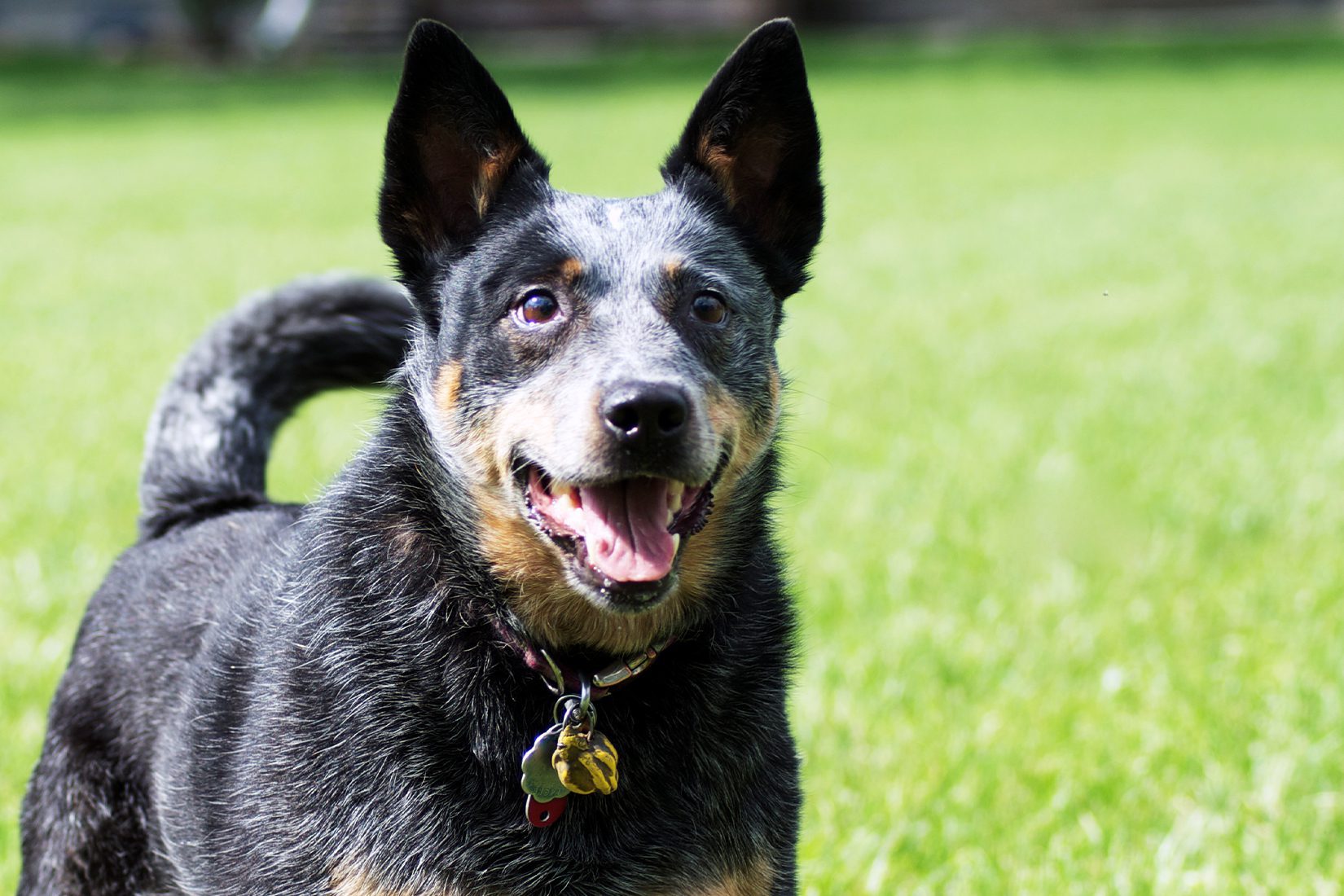Many dog guardians can relate to the difficulties of living with dogs who bark too much. Excessive barking can affect you, your neighbours, and for some, even your work.
Stopping your dog from barking is an important skill to develop. Here is how:

Understand why your dog barks
The first step to stop those noisy interruptions is figuring out the why behind your barking dog. Barking is a natural behaviour for dogs and a form of communication. Dogs bark for different reasons, and once you understand why, you can address it and be sure not to reinforce the barking.
Reasons a dog barks:
- Boredom
- Anxiety when alone
- Fear
- Attention-seeking
- Watchdog
1. Is your dog bored?
If your dog barks out of boredom, make sure they are getting daily exercise and mental stimulation. Sniffing, playing with other dogs, and physical activity are important for your dog. They will make them happy and tired, which means they might opt for a nap while you are on an online business meeting.
Another way to keep dogs occupied is with smart feeding toys that make them work for their food. A frozen stuffed Kong, a treat-dispensing toy, or a snuffle mat will keep them busy for some time.
2. Does being alone make your dog anxious?
Some dogs bark because they suffer from separation anxiety. Separation anxiety is an emotional disorder and must be treated. If you suspect your dog may have it, see your veterinarian for a diagnosis and a treatment plan.
If your dog suffers from this condition, the barking will not stop even with food toys and lots of activity and exercise before being left alone.
Learn about separation anxiety in dogs and read about preventing and reducing dog anxiety when alone (PDF).
3. Is your dog fearful?
Dogs who are afraid of strangers or other things may bark in an attempt to get the scary thing to move farther away. Teach your dog to associate the things they are scared of with fantastic predictable things, such as a tasty food reward.
The use of positive reinforcement training is key. Contact a humane dog trainer who will guide you through the steps in this process.
4. Is your dog attention-seeking?
Many dogs bark to get attention or to make their guardian do something like take them out or play with them. Dogs quickly figure out that barking works to get people to do things.
To stop attention-seeking barking, stop rewarding your dog for doing it.
Don’t throw the ball, open the door or let them out of their crate if they are barking. These are all rewards to your dog. Ignore your dog when they bark.
Dog barks = ball goes away
Dog is quiet = ball gets thrown
Be aware that if you have been rewarding your dog by giving in when they bark, the barking will get worse before it goes away. Stand your ground and do not give in, don’t let barking work.
Instead, pay attention and notice when your dog is quiet and show them that good things happen when they are quiet.
Dog sits and is quiet = food bowl is put down
5. Is your dog a “watchdog”?
Most dogs bark when a person knocks at the door, which is good as they are telling you someone is arriving. It can become a problem when the barking is excessive and the dog doesn’t want to stop.
To deal with this type of barking, teach your dog to do something that is not compatible with barking. Teach your dog to fetch a toy so they can’t bark because they have a toy in their mouth. You can also teach them to go to their mat and do a down stay when someone is at the door. For this, you need to train your dog first without doorbells or visitors. Use tasty rewards, teach your dog a down stay on a mat and then bring in the doorbell and visitor.
Another way to deal with watchdog barking is time-outs. Teach your dog that any more than a few barks results in time in the “penalty box” (i.e. another room). After the dog barks a few times, say “quiet.” On the next bark, say “too bad” and immediately put them in another room away from the action. Eventually they will learn that barking causes them to be removed from the action.
You could also do both. If your dog down stays on their mat, they get a reward. If they bark, it is off to the penalty box.
Get help
To guide you through the process of minimizing your dog’s barking, find a humane dog trainer who will help you and your dog.
Remember, there might be health issues contributing to your dog’s excessive barking. Deaf, geriatric and dogs suffering from separation anxiety may all bark excessively. Check with your veterinarian to see different options of treatment for your dog.
Stay away from electronic shock collars
Tools like e-collars cause physical and emotional distress. They are inhumane and should never be used. If you are unsure how to stop your dog from barking, check with an AnimalKind accredited trainer or consult your veterinarian.
Say no to debarking
Debarking, also known as devocalization, is a surgical procedure to remove large amounts of tissue in the vocal cords. The procedure requires anesthesia, which carries its own risks, and involves a harrowing post-operatory period for the dog.
Dogs bark for different reasons and the invasive and dangerous procedure of debarking does not address those reasons.
Seek the help of a humane trainer who can help you with environmental management and behavioural modification. Make sure there are no underlining medical conditions for the barking.
Remember, the most important thing is to identify the why behind the barking, so you can plan and address the root of the issue without subjecting your dog to a risky, painful and cruel procedure.
Learn More:
- Barking – Preventing or reducing excessive dog barking (PDF)
- Humane dog training and how to choose a dog trainer
- Training tips for common training challenges
AnimalKind is here for you!
Choosing the right dog trainer might be overwhelming. The BC SPCA created AnimalKind to help you find dog trainers who are committed to animal welfare.
Check out animalkind.ca to choose a dog trainer, and learn helpful tips from humane dog trainers.


